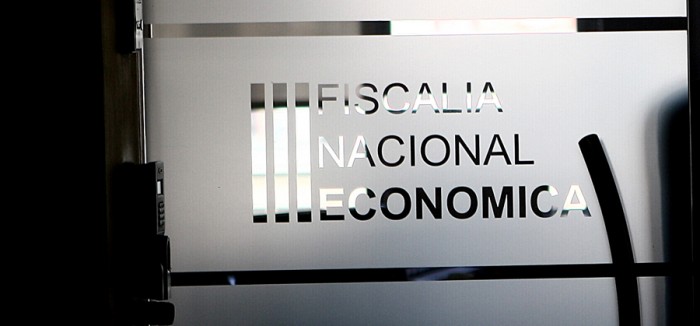We invite you to read the article by Luis Salcedo, consultant of NGO INNOVARTE, about the investigations of possible antitrust abuses by Google and Apple in Chile in the newspaper El Mostrador.
Google and Apple investigation in Chile: is it time to put competition law to the test in Latin America?
April 13th, 2023
In October 2022, Fiscalía Nacional Económica (FNE), the competition authority in Chile, opened an investigation against Google and Apple in order to determine whether or not, as a result of the obligations that these companies establish in their commercial policies for the use of their operating systems for mobile devices (including those related to the use of their app stores “App Store” and “Google Play”), the free functioning of the market could be altered to the detriment of the legal rights protected by competition law in that country..
In addition to the complaint filed against both companies last July, the FNE considered, in order to determine the convenience of this procedure, the evidentiary material obtained in the admissibility stage and several precedents associated with identical or similar conducts to those it will analyze, in jurisdictions such as the European Union, United States, Germany, Netherlands, South Korea and Mexico. It should be noted that, in addition to these, similar investigations have been carried out in Brazil, the United Kingdom, India, Japan, among other jurisdictions.
As for Chile, the FNE considers that there could be an unjustified use of market power by Google and Apple by allegedly: (i) demanding the use of their respective technological means of payment and invoicing for the download and eventual acquisition of goods or services within the technological platforms; (ii) charging certain commissions to the providers of technological platforms, which -in its opinion- could be abusive and (iii) making it impossible for some to have direct contact with their clients or access to the processing of their data, among other issues.
In this context, it is now up to the FNE to conduct the formal investigation and thus determine whether it considers that the practices of these companies have or could have a significant impact on the developers and providers of technological platforms, technological means of payment and/or end users, and, if so, on the Chilean economy. In other words, we will soon know what this entity—and perhaps also the Court for the Defense of Free Competition—thinks about whether such behavior: (i) should continue to be monitored on a case-by-case basis in light of the competition law in force in Chile; (ii) has exclusionary effects; (iii) has exploitative effects; or (iv) none of the above; all of which will have a lot of implications for the country.
will provide the academic community and regulators with a much clearer picture of the extent to which Chilean competition law is prepared to face some of the challenges of the present and near future and to continue to monitor markets. This approach will serve as an input for Chile to analyze whether or not it is advisable to update this regime and/or to regulate one or more markets ex ante.
It is worth noting that the FNE also opened the door for platform providers or interested third parties in general to participate in the investigation, provide background information and/or warn of other practices that in their opinion should also be under investigation. It will therefore be interesting to see how these third parties proceed and whether there are any claims for damages, either from consumers or from professionals.
Considering how important this digital ecosystem has become, it is very likely that the Chilean case, together with those of Brazil and Mexico, will not be the last in this decade in which a Latin American authority will proceed with the purpose of confirming or ruling out the existence of facts, acts or agreements that prevent, restrict or hinder free competition, or are likely to have such effects, in relation to the market for the distribution of technological platforms or related markets.
In order to guarantee economic efficiency, it is even advisable that the authorities in charge of the preliminary investigation in competition matters, using their powers—as the FNE has already done—collect all the elements of judgment they need to determine whether or not there is merit in opening formal investigations in these markets. In jurisdictions where this has not yet been done, it should be done soon and with the utmost responsibility. This requires not only that authorities seek to protect markets, but also that their pronouncements substantially increase the clarity that economic actors currently have about what is expected of them in ecosystems such as this one.
It is extremely common in free market economies for new markets to emerge, often through the disruption of traditional markets, some regulated and some not. The very fact that some business models are so innovative and have the potential to become so relevant in a relatively short period of time requires that, from the outset or at most after a prudent period of time, competition authorities make an effort to understand their dynamics in depth and, in many cases, to issue pronouncements that allow their understanding of the market, the position and the criteria to be understood.
This is not to suggest that these companies should be prosecuted. Rather, it is in the interest of business in general, including themselves, that these authorities understand the workings of the markets in which they participate, especially when they are, or are becoming, so important to the economy. Notwithstanding the fact that each jurisdiction may decide, as the case may be: (i) to conduct only market investigations; (ii) to close the case after the preliminary investigation is completed, with a full explanation of its motives for the sake of clarity; (iii) to open investigations and then conclude that there was no anticompetitive conduct; (iv) to open investigations that result in sanctions against the respondents; or (v) to open investigations and close them early as a result of the acceptance of commitments offered by the respondents—as has happened in several jurisdictions with Google and Apple, with the intention of setting a precedent.
Our economies require authorities that are vigilant, aware, and efficient, that seek to understand the competitive dynamics at play in particularly complex markets, and that do not ignore any of the many procedural tools offered by competition law to achieve their objectives.
Therefore, there is every reason to pay attention to the analyses and conclusions of the FNE regarding these markets, to those of the ordinary judges – in the case of possible actions for damages -, to those of the Court for the Defense of Free Competition—if the case is not filed beforehand—and to the actions of other competition and/or judicial authorities in the region.










